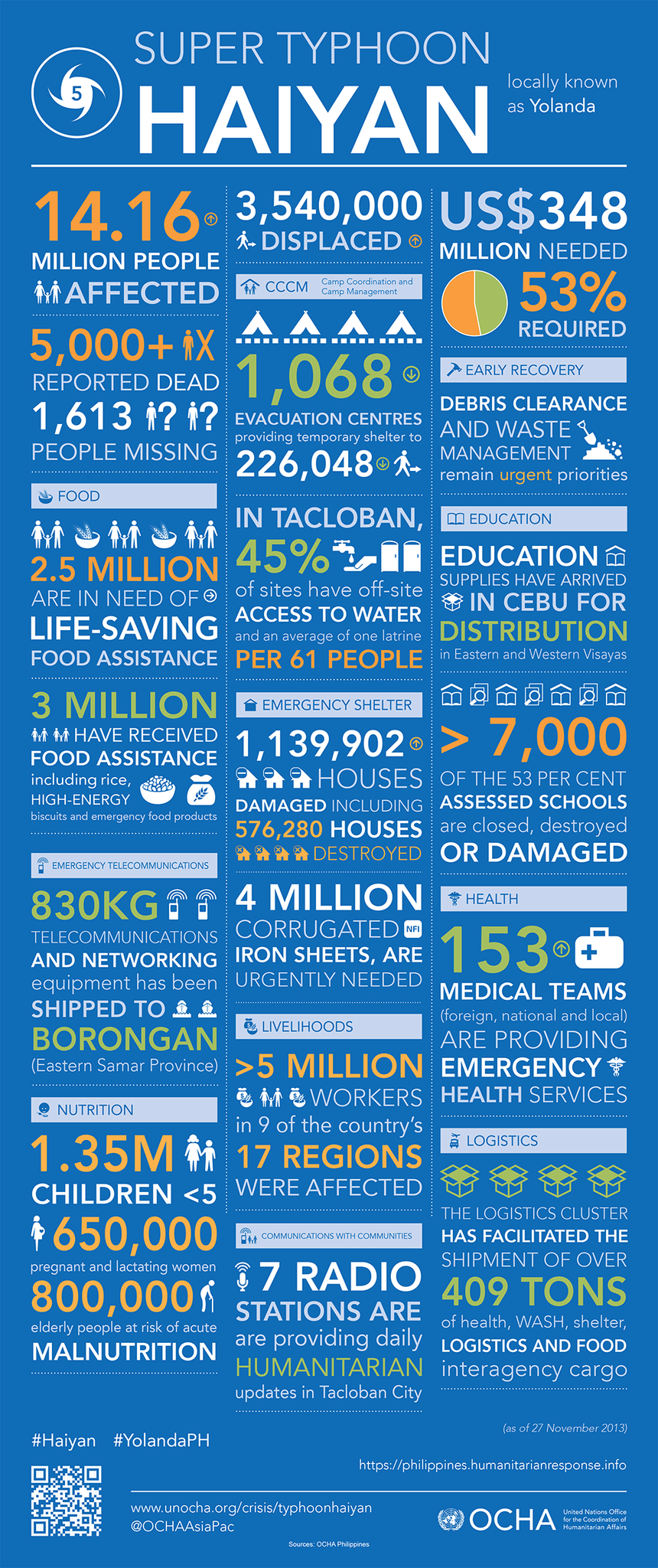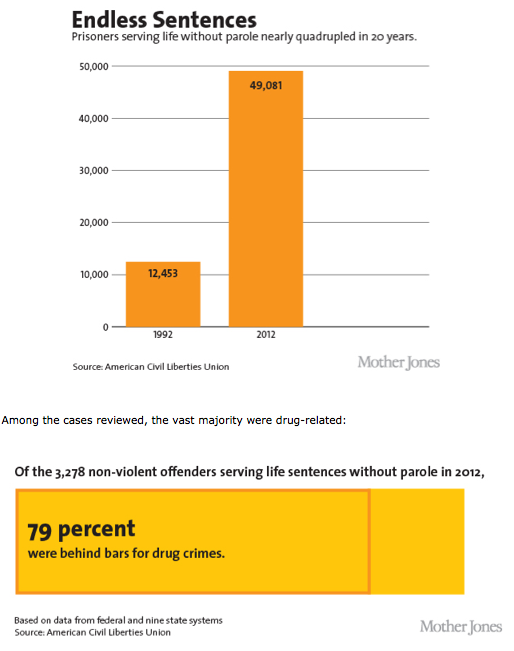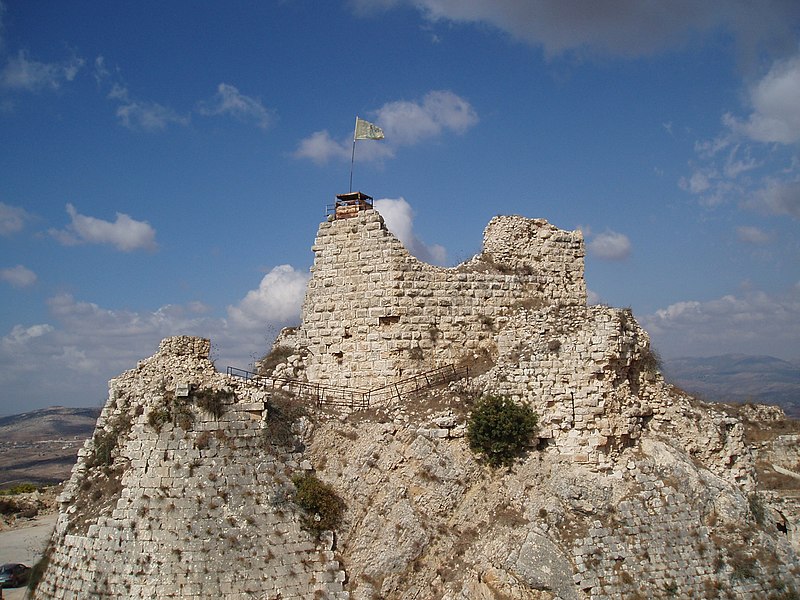The Joy of Trump
Vancouver Island Eyes on the World
Saturday, November 30, 2013
Who is a 'journalist'? People who can afford to be
A US Senate panel's attempt to define 'journalist' pleases some and dismays others.
On September 12, a US Senate panel approved legislation designed to protect journalists from having to reveal their confidential sources. In order to do this, the panel had to define "journalist". According to the proposed law,
a journalist is "an employee, independent contractor or agent of an entity that disseminates news or information … [who has been] employed for one year within the last 20 years or three months within the last five years.”
The definition was met with approval by some and dismay by others. Politico, a website that tracks the minutiae of the DC elite, praised it as "a step forward for independent and non-traditional media organisations."
The Electronic Frontier Foundation, an organisation that seeks to protect free speech online, decried it as offering insufficient protection for independent bloggers, reiterating their earlier argument that "Congress should link shield law protections to the practice of journalism as opposed to the profession.”
The Senate debate over who is a "journalist" arose in the aftermath of WikiLeaks, whose activity has been defined as both journalism and espionage. Expanding the definition of a journalist means expanding the legal protection journalists receive.
"I can't support it if everyone who has a blog has a special privilege … or if Edward Snowden were to sit down and write this stuff, he would have a privilege. I'm not going to go there," said Senator Diane Feinstein, in a statement Matt Drudge denounced as "fascist”.
The debate over who is a journalist is a debate over journalistic privilege. But in a prestige economy, the privilege to protect the confidentiality of sources is not the only privilege at play.
Today people work for the possibility of working, waiting to be considered good enough to be hired by the employers under whom they already labour.
Journalism is increasingly a profession only the wealthy can enter. To narrow the definition of "journalist" to those affiliated with established news organisations denies legal protection not only to organisations like WikiLeaks, but also to the writers and bloggers who cannot afford the exorbitant credentials and unpaid internships that provide entry into the trade.
"The journalists who can tell my story - the story of urban or inner-city America - have taken a job in marketing while disseminating their opinions on blogs," writes freelancer David Dennis. Since the recession began in 2008, racial diversity in the media has declined while gender imbalance has remained high. The bloggers to whom Dennis refers would have no legal protection under the Senate's definition.
Whom would the Senate's definition protect? Journalists employed at established publications, who are mainly white men from privileged backgrounds - a category of people who may have little interest in critiquing the establishment that benefits them. The Senate's definition of journalist protects the people who need it least.
The price of journalism today
What does it take to succeed in journalism today? For Canadian writer Alexandra Kimball, it was a surprise inheritance. Only after a financial windfall was her freelance career possible.
"To be a writer in this market requires not only money, but a concept of ‘work' that is most easily gained from privilege," she writes. "It requires a sense of entitlement … and requires you to think of working for free - at an internship, say, or on one of those gratis assignments that seem to be everywhere now - as an opportunity rather than an insult or a scam.”
As digital media gave more writers a voice, qualifications for journalism jobs became more stringent and dependent on wealth. This is true worldwide.
In 2009, the average cost of journalism school, often a prerequisite for hire in the US, was $31,000. Some universities charge over $50,000, along with living expenses the total bill can be above $80,000 (median US income is $52,000.)
A British government report showed that in the UK, journalism is the third most exclusive profession to enter, with the greatest decline in social mobility among its practitioners.
The predominance of privilege has led to a deterioration of journalistic standards. "The people who have time to fool around for no money are the people who already have lots of it," writes journalist James Bloodworth.
"And if they are the journalists of the future our media will probably resemble the establishment talking to itself, and if that's the case we will all be worse off, not only us hacks.”
Entry-level jobs in journalism have been replaced with full-time internships dependent on other internships. Today people work for the possibility of working, waiting to be considered good enough to be hired by the employers under whom they already labour.
Over the past decade, most internships in journalism have been unpaid. Even The Nation, a magazine known for its exemplary coverage of labour exploitation, paid its interns less than minimum wage until the interns protested. They will now make minimum wage - a salary which, in New York City, still locks out the majority of applicants.
Only the rich can afford to write about the poor.
Many [journalists] lack consistent employment along with health care or a living wage. Now, under the Senate's definition, they may lack legal rights as well.
Protests against unpaid internships - and unpaid writing, a practice common in publications like The Atlantic and The Huffington Post - are on the rise. But the bulk of journalists remain vulnerable. Many lack consistent employment along with health care or a living wage. Now, under the Senate's definition, they may lack legal rights as well.
In an economy this unstable, there is no such thing as a fixed professional identity. The ability to protect the confidentiality of one's sources should not depend on one.
Unequal pay
The plight of journalists is emblematic of broader trends in the prestige economy. In multiple professions, workers are performing nearly identical tasks for radically different salaries.
In academia, the tenured professor and the adjunct may teach the same courses and publish in the same journals, but only the latter earns poverty wages. In policy, unpaid interns often write and research the papers for which their well-compensated superiors get credit. And in journalism, freelancers often receive nothing while their staff equivalents earn lavish salaries.
Title may determine whether a journalist will get to maintain the right to confidentiality. But title is an arbitrary measure. It does not show professionalism so much as prestige, ethics so much as affluence and luck.
In an economy in which full-time work has been replaced by part-time labour, it is very easy to lose one's professional affiliation, and the benefits - both material and reputational - it provides. Many do not define themselves as one thing but move in and out of different professions, struggling to find what work they can.
Kelly J. Baker, a well-published PhD working, like most scholars, as an adjunct professor, was told at a conference that she was "not a real academic" because she lacked a tenure-track job. "What the hell was I supposed to say to students now?" she recalls thinking. "Please ignore me as I contemplate my lack of reality? Don't listen to me because I don't matter?”
The Senate's definition of "journalist" applies that same standard to unaffiliated writers and reporters: do not listen to them, because they do not matter. Do not protect them, because what they offer is not worth protecting - although it may be worth prosecuting.
Credibility is not something that can be bought, but credentials are. Using affiliation as a criterion to define "journalist" means only the privileged get journalistic privilege. The Senate's target may be WikiLeaks, but their proposed ruling gives a de facto demotion to writers locked out for economic reasons.
Journalists of prior generations worked their way up. Today, journalists are expected to start with an elite status and accept wages that have dwindled to nothing.
The result is that journalism is a profession which most Americans cannot afford to formally enter. The Senate should not be able to determine who is a journalist, when the people whom they represent cannot afford to determine that themselves.
17 Sep 2013
Sarah Kendzior
Sarah Kendzior is a St Louis-based writer who studies politics and media.
You can follow Sarah on twitter @sarahkendzior
The views expressed in this article are the author's own and do not necessarily reflect Al Jazeera's editorial policy.
Link: http://www.aljazeera.com/indepth/opinion/2013/09/201391764312806487.html
Row over US mobile phone 'cockroach backpack' app
Row over US mobile phone 'cockroach backpack' app

Critics say that the 'electronic backpack' is inhumane
A US company that has developed an "electronic backpack" that fits onto a cockroach allowing its movements to be controlled by a mobile phone app has defended itself against cruelty claims.
The Backyard Brains company says that the device is intended to get children to be interested in neuroscience.
A spokeswoman told the BBC that the device - being formally launched on Saturday - was not a gimmick.
But critics say that the company's stance is "disingenuous".
For the "electronic backpack" to work the cockroaches have to be placed in icy water to subdue them before sandpaper is used to remove the waxy coating on the shell of the insect's head.
An electrode connector and electrodes are then glued on to the insect's body and a needle is used to poke a hole in their thorax in order to insert a wire.
Their antennae are then cut and electrodes are inserted. A circuit is attached to their backs, and signals are received through a mobile phone app allowing users to control the cockroaches' movements to the left and to the right.
Animal behaviour scientist Jonathan Balcombe has been quoted on US scientific websites as saying that the insects are harmed in the process.
"If it was discovered that a teacher was having students use magnifying glasses to burn ants and then look at their tissue, how would people react?" he is quoted as saying.
Likewise Queen's University philosophy Professor Michael Allen warned that the device will "encourage amateurs to operate invasively on living organisms" and "encourage thinking of complex living organisms as mere machines or tools".
The Michigan-based company has even received emails saying the the backpack - known as Roboroach - "teaches kids to be psychopaths".
 Roboroach works by controlling the movements of the cockroach through electrodes that connect to a smartphone via Bluetooth.
Roboroach works by controlling the movements of the cockroach through electrodes that connect to a smartphone via Bluetooth.  Critics say that the "electronic backpack" is cruel and subjects the insects to unnecessary stress.
Critics say that the "electronic backpack" is cruel and subjects the insects to unnecessary stress.  To attach the backpack, the insect is immersed into ice water to subdue it. Electrodes are stuck to it using glue and groundwire is inserted into the thorax.
To attach the backpack, the insect is immersed into ice water to subdue it. Electrodes are stuck to it using glue and groundwire is inserted into the thorax. 
The Roboroach weighs 4.5g and is compatible with most mobile phones. It overrides the insect's antennae making it turn left and right at the flick of a switch.
But Backyard Brains says that 20% of the world will soon have a neurological disorder - for which there are no known cures - and the backpacks "allow students to do graduate level research early in life".
A company spokeswoman told the BBC that the backpack had been developed solely to encourage children to take an interest in neuroscience which, she said, needed to be better taught in American schools.
"At the moment this crucially important subject is woefully under-taught," she said, "with many schools teaching neuroscience within the biology syllabus when it should be a subject in its own right.
"That is especially the case when diseases of the brain such as Alzheimer's take a heavier toll within society."
The spokeswoman insisted that the insects are treated humanely and that the backpack - first developed in 2011 - does not harm them.
The backpack will be widely available in November in the US priced at $99 (£61).
Cockroach facts

There are about 4,600 species of cockroach and fewer than 30 of these are considered pests. (There are about 5,400 species of mammals)
The world's smallest cockroach is only 0.3mm long and lives in ant nests
The heaviest cockroach is the huge Australian Rhinoceros Cockroach at 8cm in length
Source: Natural History Museum
Source: http://www.bbc.co.uk/news/science-environment-24879140
Hacker gets 10 years
Anonymous Hacker Jeremy Hammond Sentenced To Max Penalty Of 10 Years In Prison
One of the most active hackers in the collective known as Anonymous and the source of WikiLeaks’ largest ever leak of secret documents was sentenced Friday to 10 years in prison–the most severe penalty so far of any of the activist hackers who rampaged across the Internet in the chaotic summer of 2011, and the maximum sentence he could have received under his plea bargain agreement.
Hammond’s ten year sentence will be followed by three years of supervised release during which time his computer with be monitored with surveillance software, and he’ll be forbidden from encrypting any data or using tools that would hide his identity. Hammond may still be required to pay restitution for the financial damage from his attacks, but the size of that restitution hasn’t yet been determined.
In her statement to Hammond, judge Loretta Preska rejected arguments that the political motivations for Hammond’s hacking crimes against the private intelligence firm Stratfor, police organizations and military contractors should lessen his prison time. “These are not the actions of Martin Luther King, Nelson Mandela…or even Daniel Ellsberg,” Preska said. “There’s nothing high minded or public-spirited about causing mayhem.”
Hammond pleaded guilty nearly six months ago to one count of computer fraud and abuse in the hack of private intelligence firm Stratfor, whose 5 million stolen emails Hammond helped to deliver to WikiLeaks, which has released thousands of them over the last two years.
He accepted that plea bargain agreement in return for assurances that he would be sentenced to no more than 10 years in prison rather than the maximum 30 year sentence if the case had gone to trial, and that he wouldn’t have to testify against any of his fellow hackers.
“I did this because I believe people have a right to know what governments and corporations are doing behind closed doors,” he wrote in a statement at the time of the guilty plea last May. “I did what I believe is right.”
In his statement to the court before his sentence was delivered Friday, Hammond admitted that he had hacked into “dozens” of law enforcement, military, and information security firms, but had done so with altruistic intentions, and had never even used credit card data he had stolen from those targets.
“I felt an obligation to confront and expose injustice,” Hammond said, noting that he was particularly inspired by the leak of military data to WikiLeaks by Army private Chelsea Manning, known at the time of her leaks as Bradley Manning, and he apologized for the private data of individuals exposed in his hacks. “Yes, I broke the law, but I believe that sometimes laws must be broken to make room for change.”
“Stay strong and keep struggling,” Hammond concluded his statement.
Hammond, along with other members of Anonymous, was caught in an FBI sting operation that made use of the informant Hector Xavier Monsegur, a New York-based Anonymous hacker and leader of its splinter group known as LulzSec. Monsegur was so closely involved in the Stratfor hack that he even arranged to have the stolen emails stored for a time on FBI servers, unbeknownst to Hammond.
In his statement to the court, Hammond described how he was introduced to Stratfor as a target by Monsegur, and later given other targets including foreign government websites to hack, naming Brazil, Turkey and Iran among those on the list before the judge cut him off and said that those names had been “redacted.” The data stolen from those websites, Hammond said, ended up with the FBI. “I think the government’s use of this data needs to be investigated,” he said.
Preska’s response, however, rejected the notion that Hammond was set up or used by Monsegur, placing the responsibility for the hacks squarely on Hammond himself. She quoted transcripts of his conversations in Anonymous chatrooms where he called for “maximum mayhem,” and described the goal of the Stratfor hack as “destroying the target, hoping for bankruptcy, collapse.” Preska also cited the case of a retired Arizona policeman who along with his wife received hundreds of threatening phone calls after a website attack and data dump in which Hammond participated revealed their home phone number.
Hammond’s ten year sentence is far longer than those of other Anonymous hackers who participated in the same string of attacks and all received less than three-year sentences in trials in the United Kingdom.
But Preska noted that unlike those other hackers, Hammond had a prior record of digital offenses, and had made similar arguments about the civil-disobedience nature of his actions in his 2006 sentencing for hacking a pro-war website and stealing 5,000 of its credit card numbers. ”At 19, he said he had altruistic motives, and at 28 he says he had altruistic motives,” she said. ”The most significant fact in Hammond’s history is his unrepentant recidivism.”
Follow me on Twitter, email me and check out the new paperback edition of my book,
This Machine Kills Secrets: Julian Assange, the Cypherpunks, and Their Fight to Empower Whistleblowers, a New York Times Book Review Editor’s Choice.
Andy Greenberg s a tech reporter for Forbes and
the author of This Machine Kills Secrets: How WikiLeakers, Cypherpunks,
and Hacktivists Aim to Free the World's Information.
Yellow-billed Loon

At least three white-billed divers (yellow-billed loons) have been seen in Shetland this week.
Via
Blue Planet Society
Vitamin D-deficient
Supplements 'beneficial' for vitamin D-deficient ballet dancers
Saturday 30 November 2013 - 12am PST
Current ratings for:
Supplements 'beneficial' for vitamin D-deficient ballet dancers
Supplements 'beneficial' for vitamin D-deficient ballet dancers
The study, published in the Journal of Science and Medicine in Sport, was conducted through a collaboration between researchers at the Royal National Orthopaedic Hospital (RNOH), the University of Wolverhampton and dancers at the Birmingham Royal Ballet.
These three institutions are founding partners of the National Institute of Dance Medicine and Science (NIDMS).
To conduct their study, the team split 24 elite classical ballet dancers into two groups. During the 4-month study, one group took oral supplementation of vitamin D3 to the tune of 2,000 IU per day, while a control group did not take any supplements.
Isometric muscular strength and vertical jump height were measured at the start and end of the study. Additionally, the in-house medical team recorded any injuries the dancers experienced.
The researchers found that the dancers who took vitamin D supplements showed greater improvements in muscle strength and vertical performance, while also experiencing fewer injuries, compared with the control group.
Dr. Roger Wolman, consultant in rheumatology, sport and exercise medicine at the RNOH, says:
"Vitamin D is important for bone development and has a wide range of functions. In a deficient state, dancers are at increased risk of bone injuries, and this latest research indicates an increased risk of muscle injury, which can be detrimental to their health and their careers."Following on from their findings, the researchers suggest that medical staff and instructors monitor vitamin D levels in dancers throughout the whole year and provide supplements for them during winter months.
This can help their serum levels return to normal, they say, ultimately leading to improvement in overall performance.
'Findings could cover other sports'

Ballet dancers from the Birmingham Royal Ballet participated in the study, which revealed vitamin D supplements improved their muscle strength and resulted in fewer injuries.
Photo credit: RNOH
While a lack of it can lead to bone deformities, such as rickets, we can get it for free from the sun - vitamin D is made by our body under the skin as a reaction to sunlight.
However, individuals who live in areas of the world with low annual levels of solar irradiation have difficulty getting enough sunlight for their body to efficiently manufacture the vitamin.
The alternative - vitamin D supplementation - has been widely debated in the medical community.
While some researchers have shown that vitamin D could help treat asthma or even help prevent hypertension, others have warned that raising vitamin D levels in healthy people may be potentially harmful.
Still, the researchers from this latest study say supplementation may be the way to go for dancers.
"These findings could also be extrapolated to cover other sports and training activities that take place indoors," Dr. Wolman adds.
Helen Laws, NIDMS Manager at Dance UK, says:
"Traditionally dancers spend between 6 and 8 hours training indoors for 6 days a week throughout the year, and they need to be able to execute highly technical movements during high intensity periods of training and when performing.NIDMS, the first specialist dance clinic in partnership with the NHS, provides a novel approach to the health care of dancers. Injury treatment of dancers costs the dance sector an average of £900,000 ($1.4 million) each year.
This study provides important advice on performance enhancement as well as offering vital insights into the overall health and well-being of dancers."
Written by Marie Ellis
-
The influence of winter vitamin D supplementation on muscle function and
injury occurrence in elite ballet dancers: A controlled study, Wyon MA,
Koutedakis Y, Wolman R, Nevill AM, Allen N, Journal of Science and Medicine in Sport, published online 2013, Abstract
-
Visit our
Sports Medicine / Fitness category page for the latest news on this subject.
- Please use one of the following formats to cite this article in your essay, paper or report:
MLA
Ellis, Marie. "Supplements 'beneficial' for vitamin D-deficient ballet dancers." Medical News Today. MediLexicon, Intl., 30 Nov. 2013. Web.
30 Nov. 2013.
APA
Ellis, M. (2013, November 30). "Supplements 'beneficial' for vitamin D-deficient ballet dancers." Medical News Today. Retrieved from
http://www.medicalnewstoday.com/articles/269535.
Please note: If no author information is provided, the source is cited instead.
Rate this article (click to rate)
Supplements 'beneficial' for vitamin D-deficient ballet dancers
Source: http://www.medicalnewstoday.com/articles/269535.php
http://www.medicalnewstoday.com/articles/269535.php
Thursday, November 28, 2013
Philipinnes Super Typhoon affected 14.16 million people...
OCHAAsiaPac
UN OCHA Asia Pacific
17h
NEW: The numbers you need to know on Super #Typhoon #Haiyan #YolandaPH #8 http://reliefweb.int/sites/reliefweb.int/files/resources/PHIL.Haiyan.27Nov.v1.pdf … pic.twitter.com/VA6lqQHtNn

Philippines: On the ground with Canada's DART
Tuesday, November 26, 2013
Old South Church’s 1640 Psalm Book at auction
Old South Church’s 1640 Psalm Book Could Fetch $30M At Auction
By Ula Ilnytzky, Associated Press
November 26, 2013 12:53 PM

Experts say this Psalm book could fetch upwards of $10 million if it is auctioned off. (Photo Courtesy: Boston Public Library)
A tiny book of psalms from 1640 — believed to be the first book ever printed in what is now the United States — is poised to set an auction record for a printed book on Tuesday.
The Bay Psalm Book going on the auction block at Sotheby’s has a pre-sale estimate of $15 million to $30 million.
A copy of John James Audubon’s “Birds of America,” which currently holds the record, sold for $11.5 million at Sotheby’s in 2010.
The Leonardo da Vinci Codex Hammer, a personal notebook of scientific writings and diagrams, sold for $30.8 million at Christie’s in 1994.
Only 11 copies of the Bay Psalm Book survive in varying degrees of completeness. The one being offered at Sotheby’s is one of two owned by Boston’s Old
South Church, which voted to sell it to increase its grants and ministries.
Samuel Adams was a member and Benjamin Franklin was baptized at the church, which was established in 1669.
At one time, the church owned five copies of the 6-by-5-inch book. One is now at the Library of Congress, another at Yale University and a third at Brown University.
The book was published in Cambridge, Mass., by the Puritan leaders of the Massachusetts Bay Colony. It came just 20 years after the Pilgrims landed at Plymouth.
The book was supposed to be a faithful translation into English of the original Hebrew psalms — puritans believed selected paraphrases would compromise their salvation. The 1,700 copies were printed on a press shipped over from London.
A yellowed title page, adorned with decorative flourishes, reads: “The Whole Booke of Psalmes, Faithfully Translated into English Metre.” At the bottom, it says: “Imprinted 1640.”
Historians believe an almanac may have come off the press before the Bay Psalm Book. But Mark Dimunation, chief of rare books and special collections at the Library of Congress, has said the almanac was more of a pamphlet or a broadsheet rather than a book. No copy of the almanac exists today. He noted that in the Americas, in general, books were printed in what is now Mexico as early as 1539.
“American poetry, American spirituality and the printed page all kind of combine and find themselves located in a single volume,” Dimunation said of the Bay Psalm Book.
The last time a copy came on the auction block, in 1947, it sold for a record auction price of $151,000. At the time, it surpassed auction prices for the Gutenberg Bible, Shakespeare’s First Folio and Audubon’s “Birds of America.”
Read More: http://boston.cbslocal.com/2013/11/26/old-south-churchs-1640-psalm-book-could-fetch-30m-at-auction/
Wednesday, November 20, 2013
Hand extracting Oil
Here’s how they drill oil by hand
Can you image drilling oil manually? Then read on to check how these people extract oil from small wells.
(Source: Reuters)
Ko
Min, 26 manually extracts oil from one of three 300 feet deep wells he
works on in the Minhla township of the Magwe district October 27, 2013.
Everyday Ko Min makes around $30 extracting crude oil from three small
wells after he bought rights to use
them for close to $1000 from a farmer who owns the land. In Myanmar, an
impoverished country rich with natural resources, people from poor
communities find ways to supplement their income by exploiting such
resources often using primitive and dangerous methods.
(Photo: REUTERS/Damir Sagolj)

A woman (L) manually extracts oil from a small
well as girls chat at an oil field in the Minhla township of the Magwe
district October 27, 2013. In Myanmar, an impoverished country rich with
natural resources, people from poor communities find ways to supplement
their income by exploiting such resources, such as the Minhla township,
traditionally rich with oil, often using primitive and dangerous
methods.
(Photo: REUTERS/Damir Sagolj)

People
wait to sell their crude oil to buyers at an oil field in the Minhla
township of the Magwe district October 27, 2013. In Myanmar, an
impoverished country rich with natural resources, people from poor
communities find ways to supplement their income by exploiting such
resources, such as the Minhla township, traditionally rich with oil,
often using primitive and dangerous methods.
(Photo: REUTERS/Damir Sagolj)

Ko Min receives money after selling crude oil extracted from one of
three 300 feet deep wells he works on in the Minhla township of the
Magwe district October 27, 2013.
Everyday Ko Min, makes around $30
extracting crude oil from three small wells after he bought rights to
use them for close to $1000 from a farmer who owns the land. In Myanmar,
an impoverished country rich with natural resources, people from poor
communities find ways to supplement their income by exploiting such
resources, such as the Minhla township, traditionally rich with oil,
often using primitive and dangerous methods. (Photo: REUTERS/Damir Sagolj)
less
(Photo: REUTERS/Damir Sagolj)

A woman (L) manually extracts oil from a small
well as girls chat at an oil field in the Minhla township of the Magwe
district October 27, 2013. In Myanmar, an impoverished country rich with
natural resources, people from poor communities find ways to supplement
their income by exploiting such resources, such as the Minhla township,
traditionally rich with oil, often using primitive and dangerous
methods. (Photo: REUTERS/Damir Sagolj)
(Photo: REUTERS/Damir Sagolj)
Ko Min receives money after selling crude oil extracted from one of
three 300 feet deep wells he works on in the Minhla township of the
Magwe district October 27, 2013.
Everyday Ko Min, makes around $30
extracting crude oil from three small wells after he bought rights to
use them for close to $1000 from a farmer who owns the land. In Myanmar,
an impoverished country rich with natural resources, people from poor
communities find ways to supplement their income by exploiting such
resources, such as the Minhla township, traditionally rich with oil,
often using primitive and dangerous methods. (Photo: REUTERS/Damir Sagolj)
less
less
A Child's Christmas in Wales
A Child's Christmas in Wales
Friday, November 15, 2013
Anonymous Hacker Jeremy Hammond Sentenced To Max Penalty Of 10 Years in prison
Forbes
Anonymous Hacker Jeremy Hammond Sentenced To Max Penalty Of 10 Years In Prison
One of the most active hackers in the collective known as Anonymous and the source of WikiLeaks’ largest ever leak of secret documents was sentenced Friday to 10 years in prison–the most severe penalty so far of any of the activist hackers who rampaged across the Internet in the chaotic summer of 2011, and the maximum sentence he could have received under his plea bargain agreement.
Hammond’s ten year sentence will be followed by three years of supervised release during which time his computer with be monitored with surveillance software, and he’ll be forbidden from encrypting any data or using tools that would hide his identity. Hammond may still be required to pay restitution for the financial damage from his attacks, but the size of that restitution hasn’t yet been determined.
In her statement to Hammond, judge Loretta Preska rejected arguments that the political motivations for Hammond’s hacking crimes against the private intelligence firm Stratfor, police organizations and military contractors should lessen his prison time. “These are not the actions of Martin Luther King, Nelson Mandela…or even Daniel Ellsberg,” Preska said. “There’s nothing high minded or public-spirited about causing mayhem.”
Hammond pleaded guilty nearly six months ago to one count of computer fraud and abuse in the hack of private intelligence firm Stratfor, whose 5 million stolen emails Hammond helped to deliver to WikiLeaks, which has released thousands of them over the last two years. He accepted that plea bargain agreement in return for assurances that he would be sentenced to no more than 10 years in prison rather than the maximum 30 year sentence if the case had gone to trial, and that he wouldn’t have to testify against any of his fellow hackers. “I did this because I believe people have a right to know what governments and corporations are doing behind closed doors,” he wrote in a statement at the time of the guilty plea last May. “I did what I believe is right.”
In his statement to the court before his sentence was delivered Friday, Hammond admitted that he had hacked into “dozens” of law enforcement, military, and information security firms, but had done so with altruistic intentions, and had never even used credit card data he had stolen from those targets. “I felt an obligation to confront and expose injustice,” Hammond said, noting that he was particularly inspired by the leak of military data to WikiLeaksa by Army private Chelsea Manning, known at the time of her leaks as Bradley Manning, and he apologized for the private data of individuals exposed in his hacks. “Yes, I broke the law, but I believe that sometimes laws must be broken to make room for change.”
“Stay strong and keep struggling,” Hammond concluded his statement.
Hammond, along with other members of Anonymous, was caught in an FBI sting operation that made use of the informant Hector Xavier Monsegur, a New York-based Anonymous hacker and leader of its splinter group known as LulzSec. Monsegur was so closely involved in the Stratfor hack that he even arranged to have the stolen emails stored for a time on FBI servers, unbeknownst to Hammond.
In his statement to the court, Hammond described how he was introduced to Stratfor as a target by Monsegur, and later given other targets including foreign government websites to hack, naming Brazil, Turkey and Iran among those on the list before the judge cut him off and said that those names had been “redacted.” The data stolen from those websites, Hammond said, ended up with the FBI. “I think the government’s use of this data needs to be investigated,” he said.
Preska’s response, however, rejected the notion that Hammond was set up or used by Monsegur, placing the responsibility for the hacks squarely on Hammond himself. She quoted transcripts of his conversations in Anonymous chatrooms where he called for “maximum mayhem,” and described the goal of the Stratfor hack as “destroying the target, hoping for bankruptcy, collapse.” Preska also cited the case of a retired Arizona policeman who along with his wife received hundreds of threatening phone calls after a website attack and data dump in which Hammond participated revealed their home phone number.
Hammond’s ten year sentence is far longer than those of other Anonymous hackers who participated in the same string of attacks and all received less than three-year sentences in trials in the United Kingdom.
But Preska noted that unlike those other hackers, Hammond had a prior record of digital offenses, and had made similar arguments about the civil-disobedience nature of his actions in his 2006 sentencing for hacking a pro-war website and stealing 5,000 of its credit card numbers. ”At 19, he said he had altruistic motives, and at 28 he says he had altruistic motives,” she said. ”The most significant fact in Hammond’s history is his unrepentant recidivism.”
–
Follow me on Twitter, email me, anonymously send me sensitive documents or tips. and check out the new paperback edition of my book, This Machine Kills Secrets: Julian Assange, the Cypherpunks, and Their Fight to Empower Whistleblowers, a New York Times Book Review Editor’s Choice.
Anonymous Hacker Jeremy Hammond Sentenced To Max Penalty Of 10 Years In Prison
One of the most active hackers in the collective known as Anonymous and the source of WikiLeaks’ largest ever leak of secret documents was sentenced Friday to 10 years in prison–the most severe penalty so far of any of the activist hackers who rampaged across the Internet in the chaotic summer of 2011, and the maximum sentence he could have received under his plea bargain agreement.
Hammond’s ten year sentence will be followed by three years of supervised release during which time his computer with be monitored with surveillance software, and he’ll be forbidden from encrypting any data or using tools that would hide his identity. Hammond may still be required to pay restitution for the financial damage from his attacks, but the size of that restitution hasn’t yet been determined.
In her statement to Hammond, judge Loretta Preska rejected arguments that the political motivations for Hammond’s hacking crimes against the private intelligence firm Stratfor, police organizations and military contractors should lessen his prison time. “These are not the actions of Martin Luther King, Nelson Mandela…or even Daniel Ellsberg,” Preska said. “There’s nothing high minded or public-spirited about causing mayhem.”
Hammond pleaded guilty nearly six months ago to one count of computer fraud and abuse in the hack of private intelligence firm Stratfor, whose 5 million stolen emails Hammond helped to deliver to WikiLeaks, which has released thousands of them over the last two years. He accepted that plea bargain agreement in return for assurances that he would be sentenced to no more than 10 years in prison rather than the maximum 30 year sentence if the case had gone to trial, and that he wouldn’t have to testify against any of his fellow hackers. “I did this because I believe people have a right to know what governments and corporations are doing behind closed doors,” he wrote in a statement at the time of the guilty plea last May. “I did what I believe is right.”
In his statement to the court before his sentence was delivered Friday, Hammond admitted that he had hacked into “dozens” of law enforcement, military, and information security firms, but had done so with altruistic intentions, and had never even used credit card data he had stolen from those targets. “I felt an obligation to confront and expose injustice,” Hammond said, noting that he was particularly inspired by the leak of military data to WikiLeaksa by Army private Chelsea Manning, known at the time of her leaks as Bradley Manning, and he apologized for the private data of individuals exposed in his hacks. “Yes, I broke the law, but I believe that sometimes laws must be broken to make room for change.”
“Stay strong and keep struggling,” Hammond concluded his statement.
Hammond, along with other members of Anonymous, was caught in an FBI sting operation that made use of the informant Hector Xavier Monsegur, a New York-based Anonymous hacker and leader of its splinter group known as LulzSec. Monsegur was so closely involved in the Stratfor hack that he even arranged to have the stolen emails stored for a time on FBI servers, unbeknownst to Hammond.
In his statement to the court, Hammond described how he was introduced to Stratfor as a target by Monsegur, and later given other targets including foreign government websites to hack, naming Brazil, Turkey and Iran among those on the list before the judge cut him off and said that those names had been “redacted.” The data stolen from those websites, Hammond said, ended up with the FBI. “I think the government’s use of this data needs to be investigated,” he said.
Preska’s response, however, rejected the notion that Hammond was set up or used by Monsegur, placing the responsibility for the hacks squarely on Hammond himself. She quoted transcripts of his conversations in Anonymous chatrooms where he called for “maximum mayhem,” and described the goal of the Stratfor hack as “destroying the target, hoping for bankruptcy, collapse.” Preska also cited the case of a retired Arizona policeman who along with his wife received hundreds of threatening phone calls after a website attack and data dump in which Hammond participated revealed their home phone number.
Hammond’s ten year sentence is far longer than those of other Anonymous hackers who participated in the same string of attacks and all received less than three-year sentences in trials in the United Kingdom.
But Preska noted that unlike those other hackers, Hammond had a prior record of digital offenses, and had made similar arguments about the civil-disobedience nature of his actions in his 2006 sentencing for hacking a pro-war website and stealing 5,000 of its credit card numbers. ”At 19, he said he had altruistic motives, and at 28 he says he had altruistic motives,” she said. ”The most significant fact in Hammond’s history is his unrepentant recidivism.”
–
Scientists tracking iceberg twice size of Atlanta
2013 May One Of The Hottest Years On Record
HuffPost Green
2013 May One Of The Hottest Years On Record
By Alister Doyle and Michael Szabo WARSAW, Nov 13 (Reuters) -
This
year is the seventh warmest since records began in 1850 with a trend to
weather extremes and the impact of storms such as Typhoon...
Thursday, November 14, 2013
New ACLU report documents the disturbing growth of endless prison sentences:
New ACLU report documents the disturbing growth of endless prison sentences: http://mojo.ly/1aDLnnq pic.twitter.com/PtP9aJU8JT

Wednesday, November 13, 2013
Across The Ravaged Land - Nic Brandt
http://www.nickbrandt.com/
 m
m|
Nick Brandt photographs exclusively in Africa, one of his
goals being to record an elegy and last testament to the wild animals
and places there before they are gone at the hands of man.
Starting in 2001, he has been working on a trilogy of books, the first two of which have been published together in the volume "On This Earth, A Shadow Falls". The final volume in the trilogy, completing the sentence, will be published in September 2013. Brandt has had multiple solo gallery and museum shows around the world, including in New York, London, Berlin, Paris and Los Angeles. Born and raised in England, he now lives in the southern Californian mountains. |
A picture tells a thousand words... Brandt is really good at showing misery and wonder.
Across The Ravaged Land










Source: http://www.nickbrandt.com/
Saturday, November 9, 2013
War on Drugs
Ending the Global War on Drugs
The drug war destabilizes America’s friends and finances its enemies.

Timeline of total number of inmates in U.S. prisons and jails. From 1920 to 2008.
And those deaths have been taking place on their streets and before their eyes--not in a distant jungle.
In my talk, I tried to highlight a number of mistaken assumptions underlying the War on Drugs and to offer alternatives with different policy implications. One of these is the assumption that "drugs cause crime, corruption, and disease "—leading to a prohibitionist policy implemented by a war on drugs. Unfortunately, the drug war creates a gigantic black market that undermines the stability of friendly countries—witness Colombia and Mexico—and finances our enemies—for example Al Qaeda and the Taliban. Attempts to suppress the black market by force merely spread it, from one country to another or, in response to local police crackdowns, from one neighborhood to another.
Instead of "drugs cause crime, corruption, and disease," a more accurate formulation is "drug prohibition causes a black market; and the black market causes crime, corruption, and disease." This alternative implies a policy of drastically shrinking the black market, by creating a regulated legal market.
One exciting development discussed at the conference has been the uniting of key figures, such as the former Presidents of Brazil (Cardoso), Mexico (Fox and Zedillo), and Colombia (Gaviria) to advocate for reversing the drug war policy that is causing such havoc in their countries.
Image Source:
Timeline of total number of inmates in U.S. prisons and jails. From 1920 to 2008.
Wikimedia Commons http://bit.ly/uEkXwD
Check out my most recent book, The Myth of Race, which debunks common misconceptions, as well as my other books at http://amazon.com/Jefferson-M.-Fish/e/B001H6NFUI
The Myth of Race is available on Amazon http://amzn.to/10ykaRU and Barnes & Noble http://bit.ly/XPbB6E
Friend/Like me on Facebook: http://www.facebook.com/JeffersonFishAuthor
Follow me on Twitter: www.twitter.com/@jeffersonfish
Visit my website: www.jeffersonfish.com
Link:
http://www.psychologytoday.com/blog/looking-in-the-cultural-mirror/201111/ending-the-global-war-drugs
The Ruins of the Beaufort Castle

The ruins of Beaufort Castle in 2005
Beaufort or Belfort (Shaqif Arnun or Qala'at al-Shaqif in Arabic)[1] is a Crusader fortress in Nabatieh Governorate, Southern Lebanon, about 1 kilometre (0.62 mi) to the south-south-east of the village of Arnoun. There was a fortification on the site before it was captured by Fulk, King of Jerusalem, in 1139 and construction of the Crusader castle probably began soon after. Saladin captured Beaufort in 1190, but 60 years later Crusaders re-took it. In 1268 Sultan Baibars captured the castle.
The castle was named "bel fort" or "beau fort" (French for "beautiful fortress") by the Crusaders who occupied the castle in the 12th century. Its Arabic name Qala'at al-Shaqif means Castle of the High Rock (shqif is the Aramaic word for "high rock"). Beaufort provides one of the few cases where a medieval castle proved of military value and utility also in modern warfare, as its late 20th-century history shows.
Link:
http://en.wikipedia.org/wiki/File:Chateau_de_Beaufort.jpg
 Beaufort Castle,
Arnoun:
Beaufort Castle,
Arnoun:
The cliff-top Crusader Castle,
which has changed hands countless times over the
centuries, is seen as a symbol of shifting power in
southern Lebanon. The Beaufort Castle was
completed in 1139 A.D. by the Crusaders. It stands on
a sheer escarpment almost a 1000m above the valley
below overlooking the Litani river. T. E.
Lawrence once described it as the finest medieval
castle in the Arab world.
On the 24th of May 2000,
retreating Israeli Occupation Forces destroyed most
parts of the Castle, despite appeals by the Lebanese
Prime Minister to the United Nations and the
International Community to spare the Crusader
castle.
http://tyros.leb.net/beaufort/

Link: http://news.bbc.co.uk/2/hi/middle_east/762297.stm
http://tyros.leb.net/beaufort/
Beaufort Castle suffers in Israeli retreat

The imposing silhouette dominates south Lebanon
Retreating
Israeli troops appear to have destroyed parts of Beaufort Castle in
Southern Lebanon, despite appeals by the Lebanese prime minister for the
Crusader fort to be spared.
Local residents reported that a huge explosion engulfed the castle at about midnight local time on Tuesday night.
The blast lit up the sky and rocked the area around the castle, just
after Israeli troops withdrew from the castle under artillery and air
cover.
The castle had been a garrison headquarters and the nerve centre of Israel's 22-year occupation of southern Lebanon.
Lebanese Prime Minister Salim al-Hoss wrote to UN Secretary-General
Kofi Annan and other world leaders on Sunday, imploring them to prevent
Israel destroying one of Lebanon's most famous historic sites.
Abandoned castle
When Hezbollah fighters and local residents moved into the abandoned castle at dawn they found smouldering wreckage and clothing discarded by the retreating forces.
Concrete bunkers at the castle had been blown up, bringing down part of the historic stone wall.
"I brought my kids here to teach them a lesson about how we defeated
Israel," said Salem Sweidan, escorting his two young children through
the smoking debris.
Symbol of shifting power
The cliff-top Crusader castle, which has changed hands countless times over the centuries, is seen as a symbol of shifting power in southern Lebanon.
Beaufort Castle was completed in 1139 by the Crusaders. It stands on a
sheer escarpment almost a 1000m above the valley below, overlooking the
Litani river.
T E Lawrence once described it as the finest medieval castle in the Arab world.
Every invading army since the Crusades has seized, held and lost Beaufort, from Saladin in the 12th century right down to Palestinian guerrillas, who occupied the castle in the 1970s.
For the past eighteen years, Beaufort has been held by the Israeli army, which drove out the PLO in a fierce battle during which much of the castle was destroyed.

The symbol of foreign occupation in Hezbollah's hands
|
The castle had been a garrison headquarters and the nerve centre of Israel's 22-year occupation of southern Lebanon.
I brought my kids here to teach then a lesson about how we defeated Israel
|
Lebanese villager visiting Beaufort Castle
|
When Hezbollah fighters and local residents moved into the abandoned castle at dawn they found smouldering wreckage and clothing discarded by the retreating forces.

Retreating Israel soldiers blow up an outpost near the Beaufort Castle
|
Symbol of shifting power
The cliff-top Crusader castle, which has changed hands countless times over the centuries, is seen as a symbol of shifting power in southern Lebanon.

Lebanese villagers reclaim the castle
|
Every invading army since the Crusades has seized, held and lost Beaufort, from Saladin in the 12th century right down to Palestinian guerrillas, who occupied the castle in the 1970s.
For the past eighteen years, Beaufort has been held by the Israeli army, which drove out the PLO in a fierce battle during which much of the castle was destroyed.
Link: http://news.bbc.co.uk/2/hi/middle_east/762297.stm
Great Movie:
| Beaufort |
|---|
 |
|---|
| Directed by | Joseph Cedar |
|---|---|
| Produced by | Moshe Edery |
| Written by | Ron Leshem Joseph Cedar |
| Starring | Oshri Cohen Itay Tiran Eli Eltonyo Ohad Knoller Itay Turgeman |
| Music by | Ishai Adar |
| Cinematography | Ofe |
Beaufort (Hebrew: בופור) is a 2007 Israeli war film. The film was directed by Joseph Cedar and was co-written by Cedar and Ron Leshem, based on Leshem's novel of the same name. The film is about an IDF unit stationed at the Beaufort post in Southern Lebanon during the South Lebanon conflict, and their commander, Liraz Librati, who was the last commander of the Beaufort castle before the Israeli withdrawal in 2000.
The film takes place in the year 2000, the year of the IDF withdrawal from the Israeli Security Zone in southern Lebanon. It chronicles the daily routine of a group of soldiers positioned at the 12th century Crusader stronghold of Beaufort Castle, their feelings and their fears, and explores their moral dilemmas in the days preceding the withdrawal and end of the 18-year South Lebanon conflict.
The film's director, himself an IDF veteran who was stationed in Lebanon during the first Lebanon war,[1] uses the stone walls of Beaufort castle as a symbol of the futility and endlessness of war. The film was shot during the spring of 2006 at Nimrod Fortress, a similar mountaintop fort in the Golan Heights. Cedar said he was influenced by the film Das Boot, and the World War I "bunker films", when creating the underground tunnels and mazes of the Beaufort.[2] He also said that Paths of Glory was a heavy influence, specifically on the bomb-disarming mission scene.[1] Useful historical information for understanding the movie can be found in the article on the original capture of Beaufort in 1982 by the Israeli army.
Filming was completed in June, just a month before the second war in Lebanon broke out.
Subscribe to:
Posts (Atom)












 http://www.blogger.com/blogger.g?blogID=5863347207307111536#editor/target=post;postID=6741654997734905468
http://www.blogger.com/blogger.g?blogID=5863347207307111536#editor/target=post;postID=6741654997734905468

